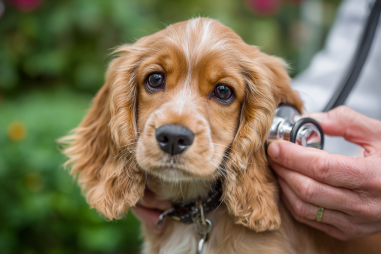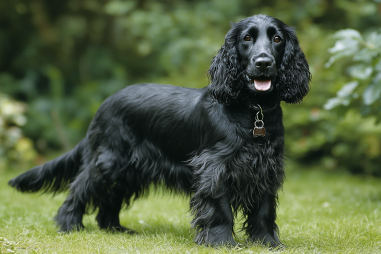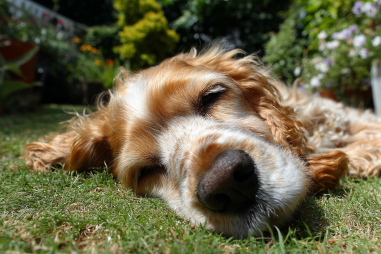Welcoming an English Cocker Spaniel puppy into your home is an exciting and joyful experience. These affectionate and energetic dogs bring a lot of love and companionship, but they also require attentive care, especially during their first few months. From setting up a safe environment to understanding their dietary needs, socialization, training, and grooming, taking proper care of your puppy lays the foundation for a happy and healthy life together. This guide will walk you through essential tips to ensure your English Cocker Spaniel puppy thrives in your care.
Preparing Your Home for a Puppy
Before bringing your English Cocker Spaniel puppy home, it’s important to prepare a safe and welcoming space. Puppies are curious by nature and will explore everything, so puppy-proofing your house is a must. Remove any hazardous items such as electrical cords, small chewable objects, toxic plants, and chemicals from areas your puppy can reach. Designate a specific area for your puppy to eat, sleep, and play to give them a sense of security and routine.
Invest in comfortable bedding, puppy gates to restrict access to certain rooms, and lots of chew toys to satisfy their natural urge to bite as they teethe. Remember to buy essential supplies like a collar, leash, ID tag, food and water bowls, and a crate if you plan to crate train. Introducing your puppy to a calm and organized environment will help reduce anxiety and encourage positive behavior from the start.
Feeding Guidelines for Puppies
Nutrition plays a vital role in your English Cocker Spaniel puppy’s growth and development. Choosing the right puppy food formulated for their size and breed is essential. High-quality commercial puppy diets rich in protein, healthy fats, and essential vitamins and minerals support strong bones, muscles, and immune function.
Here are some feeding tips to keep in mind:
- Frequency: Puppies typically eat three to four meals a day until they reach about six months of age.
- Portion control: Follow the feeding guidelines provided on your puppy food packaging, but adjust portions according to your puppy’s individual needs and growth rate.
- Fresh water: Always provide clean, fresh water and replenish it regularly.
- Avoid harmful human foods: Chocolate, grapes, onions, and caffeine are toxic to dogs and should never be offered.
Consult your veterinarian to tailor a feeding plan specific to your puppy’s health requirements, including any supplements if needed. Avoid sudden changes in diet to prevent digestive upset; any transition should be gradual over 7 to 10 days.
Early Socialization and Training Basics
Socializing your English Cocker Spaniel puppy early is crucial for shaping a well-adjusted adult dog. Introducing your puppy to various people, animals, sounds, and environments during the sensitive period (typically between 3 to 14 weeks of age) builds confidence and reduces fearfulness later in life.
Enroll your puppy in a reputable puppy socialization class where positive interactions can take place under supervision. At home, expose them gently to different household noises like vacuum cleaners, doorbells, and music. Reward calm behavior with treats and praise to reinforce good experiences.
Basic training should also begin early. Teach simple commands such as “sit,” “stay,” and “come” using positive reinforcement techniques like treats, toys, and affection. Consistency and patience are key — short, fun training sessions of five to ten minutes several times a day work best for young puppies. Additionally, start housetraining immediately by establishing a routine for potty breaks and using praise to reward success.
Health and Vaccination Schedules
Regular veterinary visits are fundamental to monitoring your English Cocker Spaniel puppy’s health. Schedule a first check-up shortly after bringing your puppy home. Your vet will assess weight, general health, and discuss parasite prevention options such as flea, tick, and worm treatments.
Vaccination is critical to protect your puppy against dangerous diseases like parvovirus, distemper, and rabies. A typical vaccination schedule for puppies includes:
- 6-8 weeks: First round of shots (often distemper, adenovirus, parvovirus)
- 10-12 weeks: Second round of vaccines
- 14-16 weeks: Final puppy vaccination and rabies vaccine
Your veterinarian will also advise when to begin spaying or neutering based on age and breed specifics. Keep a record of all vaccinations and health checks to stay organized. Promptly address any signs of illness such as vomiting, diarrhea, lethargy, or loss of appetite with professional care.
Grooming Needs for Puppies
English Cocker Spaniels have a beautiful, medium-length coat that requires regular grooming even from puppyhood. Brushing your puppy’s coat at least two to three times a week helps prevent mats and tangles, while also reducing shedding. Use a slicker brush or a comb designed for medium coats and introduce grooming gently to create a positive association.
Bathing can be done as needed using a mild puppy shampoo, but avoid over-bathing as it can strip natural oils from the skin. Check ears weekly for dirt, wax buildup, or signs of infection, as this breed is prone to ear problems due to their floppy ears. Clean ears carefully with a vet-recommended solution and keep the hair around the ear canals trimmed if necessary.
Don’t forget nail trimming every few weeks to prevent discomfort or injury, and begin brushing your puppy’s teeth to promote dental health from an early age. Regular grooming sessions offer excellent bonding opportunities and help you monitor your puppy’s overall condition.
Common Puppy Challenges
While raising an English Cocker Spaniel puppy is rewarding, you might encounter a few challenges along the way. Some common issues include:
- Chewing and biting: Puppies explore with their mouths and may nip or chew on inappropriate items. Provide plenty of safe chew toys and redirect their attention when you catch them chewing something undesirable.
- Separation anxiety: This breed forms strong bonds and may become anxious when left alone. Gradually accustom your puppy to being alone for short periods, and consider interactive toys to keep them occupied.
- Potty training setbacks: Inconsistency or abrupt schedule changes can cause accidents. Maintain a regular routine, supervise closely, and reward potty success consistently.
- Excess energy: English Cocker Spaniels are active dogs that need daily exercise. Provide plenty of physical activity and mental stimulation to prevent boredom and destructive behaviors.
Remember that patience, consistency, and positive reinforcement are essential tools in addressing any behavioral challenges.
Enjoying the Journey with Your New Puppy
Caring for an English Cocker Spaniel puppy involves dedication, time, and love, but the rewards are immeasurable. Establishing a solid routine for feeding, training, grooming, and health care early on fosters a trusting relationship and helps your puppy grow into a well-mannered, joyful companion. Always consult your veterinarian or professional trainer if you need support or guidance along the way. With patience and care, you’ll enjoy a happy, healthy, and fulfilling life with your new furry family member.







